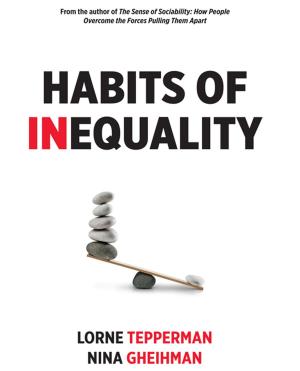The Return of the Native
American Indian Political Resurgence
Nonfiction, Social & Cultural Studies, Social Science, Cultural Studies, Native American Studies, Political Science, History| Author: | Stephen Cornell | ISBN: | 9780190281700 |
| Publisher: | Oxford University Press | Publication: | July 19, 1990 |
| Imprint: | Oxford University Press | Language: | English |
| Author: | Stephen Cornell |
| ISBN: | 9780190281700 |
| Publisher: | Oxford University Press |
| Publication: | July 19, 1990 |
| Imprint: | Oxford University Press |
| Language: | English |
An incisive look at American Indian and Euro-American relations from the 16th century to the present, this book focuses on how such relations have shaped the Native American political identity and tactics in the ongoing struggle for power. Cornell shows how, in the early days of colonization, Indians were able to maintain their nationhood by playing off the competing European powers; and how the American Revolution and westward expansion eventually caused Native Americans to lose their land, social cohesion, and economic independence. The final part of the book recounts the slow, steady reemergence of American Indian political power and identity, evidenced by militant political activism in the 1960s and early 1970s. By paying particular attention to the evolution of Indian groups as collective actors and to changes over time in Indian political opportunities and their capacities to act on those opportunities, Cornell traces the Indian path from power to powerlessness and back to power again.
An incisive look at American Indian and Euro-American relations from the 16th century to the present, this book focuses on how such relations have shaped the Native American political identity and tactics in the ongoing struggle for power. Cornell shows how, in the early days of colonization, Indians were able to maintain their nationhood by playing off the competing European powers; and how the American Revolution and westward expansion eventually caused Native Americans to lose their land, social cohesion, and economic independence. The final part of the book recounts the slow, steady reemergence of American Indian political power and identity, evidenced by militant political activism in the 1960s and early 1970s. By paying particular attention to the evolution of Indian groups as collective actors and to changes over time in Indian political opportunities and their capacities to act on those opportunities, Cornell traces the Indian path from power to powerlessness and back to power again.















